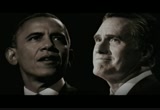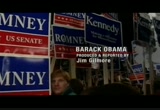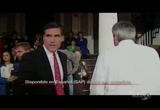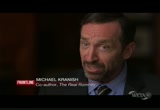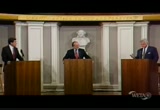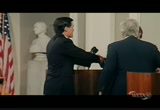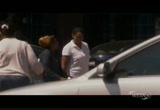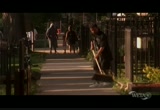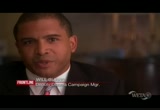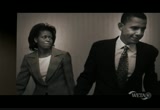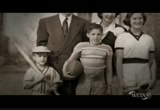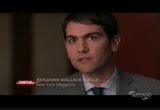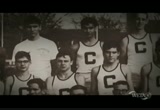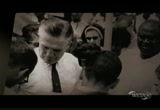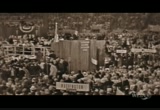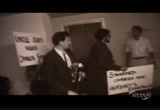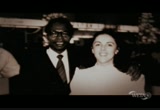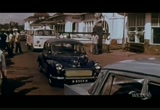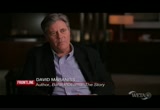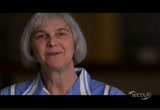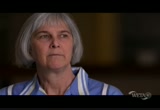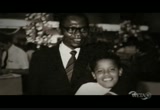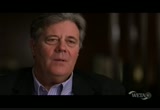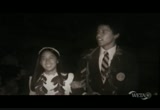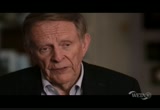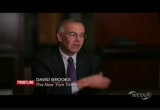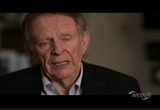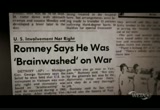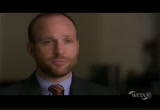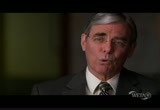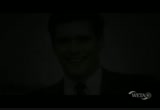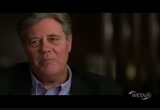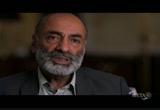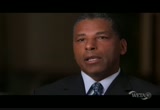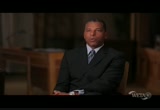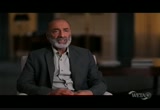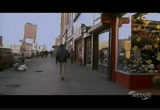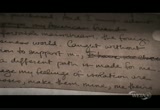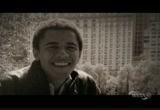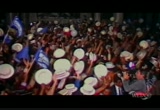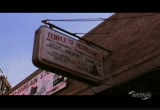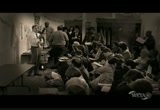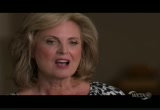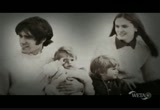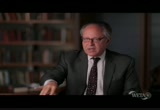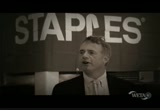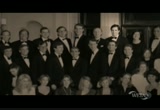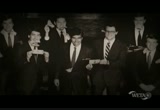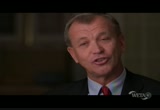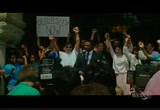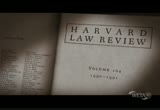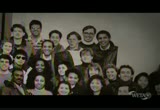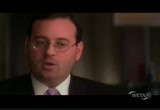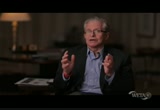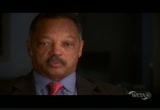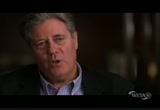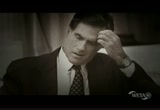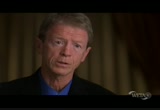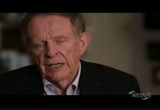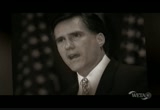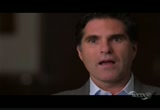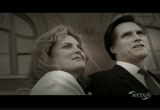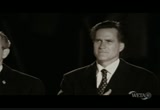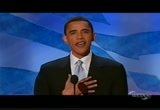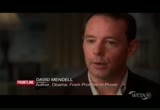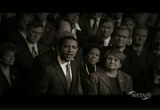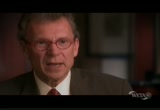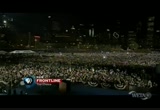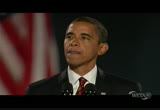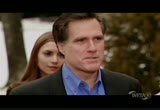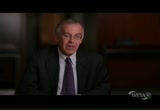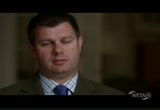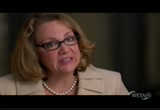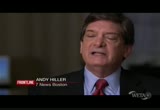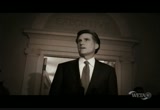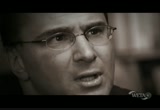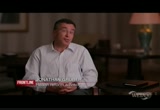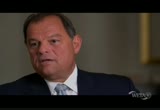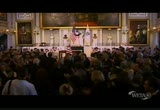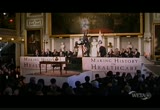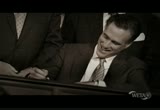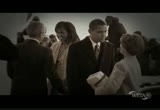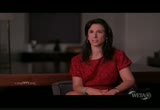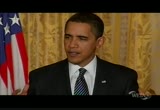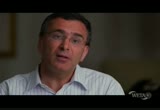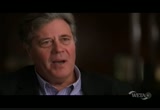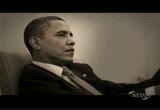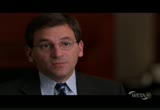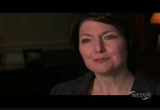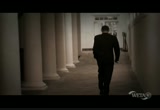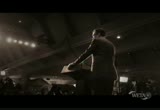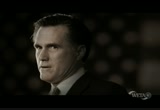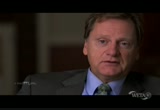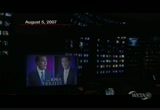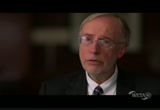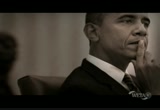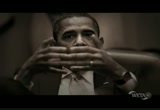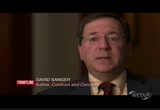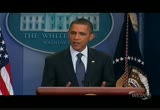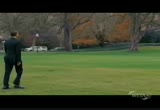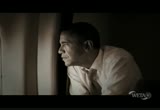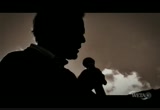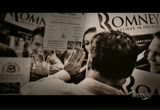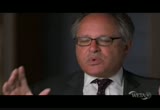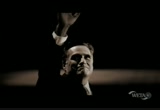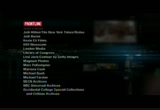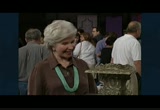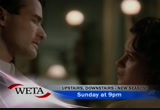tv Frontline PBS October 26, 2012 9:00pm-11:00pm EDT
9:00 pm
>> tonight frontline, the lives of the men who would be president. >> barack obama's a fascinating mixture of boldness and caution. >> when mitt romney gets focused and locked in, watch out. >> stories of family... >> stanley ann dunham was really a thoroughly unconventional mother. >> he had to fend for himself. every step, he was alone. >> the dad stuff just can't be underestimated. >> he had a lot of power to him. he was our hero. >> identity... >> he told his fifth-grade class that his father was an indonesian king. >> he was a white-black kid. >> his extended family is one of the leading mormon families.
9:01 pm
>> he can't talk about it because it involves polygamy. >> controversy... >> he's the first nobel peace prize winner with a kill list. >> mitt romney doesn't have an ideological bone in his body, as far as i can tell. >> and destiny. >> what unites both of these characters is this sense that there was a place that they were going, a destiny that they had. >> tonight ofrontline, "the choice 2012." >> frontlinis made possible by contributions to your pbs station from viewers like you. thank you. and by the corporation for public broadcasting. major funding is provided by the john d. and catherine t. macarthur foundation, committed to building a more just, verdant and peaceful world. additional funding is provided
9:02 pm
by the park foundation, dedicated to heightening public awareness of critical issues. and by the frontline journalism fund. >> in massachusetts, in a political fight that ted kennedy probably never imagined... >> kennedy's seventh campaign has become a desperate struggle for survival... >> this year he in his toughest race ever against a political newcomer... >> it's youth versus age, the senate's leading liberal against a wildly successful venture capitalist. >> we get a call from the boston police. and they say, "it's a mad scene down here." >> (chanting): we want ted! >> narrator: it was the night of their first debate. >> "we're going to have to get you an escort to get into the building." they had eight or ten motorcycle police officers there to guide us through the mobs of
9:03 pm
people at the site. >> narrator: it was 47-year-old mitt romney's first campaign. >> and mitt just has this big smile on his face, and he looks at me and goes, "boy, however this turns out, this really makes it worth it." >> narrator: the race had been close. romney needed a great performance. >> i don't think he had any idea what it was going to be like, because he had never done debates under that pressure. >> narrator: he'd gotten into the race because kennedy looked weak, beatable. >> at the time ted kennedy seemed vulnerable. it was a weak period for kennedy. he looked bad, he sounded bad, and in that way he was vulnerable. >> narrator: he was dramatically overweight. there had been trouble with alcohol and women. he'd mortgaged his house to stay in the race. >> romney was everything ted kennedy was not. you know, he had this clean
9:04 pm
family life. he was a really good speaker. he was really athletic and he had a good kind of campaign visage. >> people knew that he had gone to harvard business school, had made a lot of money, been a registered independent up until not too long before he ran. >> he ran as a liberal-to-moderate politician. he opposed newt gingrich's "contract with america." he supported abortion rights. he said he was to the left of ted kennedy on gay rights. >> the expectation was that romney would do very well. >> mitt romney, the republican candidate... >> i ran into someone who was not so friendly to us who said, "did you come to see your guy destroyed?" i paced in the back of faneuil hall during the entire debate. >> good evening and welcome. >> narrator: romney directly confronted edward kennedy. >> senator kennedy, my impression has been that you have followed a campaign, as soon as the primary was over, of trying to divert the voters' attention from the issues at hand, and instead making personal attacks on me which are unfounded, unfair and sleazy.
9:05 pm
>> narrator: kennedy had unleashed negative tv ads. >> romney. it's not just what he did to his workers and business that's the problem. it's what he might do to us in the senate. >> kennedy was a master politician and what he did was he used a series of filmed ads to its maximal effect. >> mitt romney says he helped create 10,000 jobs. the former workers at scm in marion, indiana, say something else. >> i'd like to say to the people of massachusetts, if you think it can't happen to you, think again, because we thought it wouldn't happen here either. >> i want to know why you spent millions of dollars showing advertisements of strikers in a company i had nothing to do with. >> narrator: but kennedy, the veteran, ignored romney's charge. >> mr. romney, let's put the ads aside and talk about health care. let's talk about education. let's talk about training. let's talk about new jobs. let's talk about infrastructure. let's talk about our different vision for massachusetts.
9:06 pm
that's what the people of massachusetts want to talk about. and that's what i think they ought to hear about. >> i think about 10 or 15 minutes in, romney began to realize this was not the easy exercise he thought it was going to be. >> narrator: then romney faltered. the issue was health care. >> i have a plan. i have a position paper on health care. i'm happy to show it to you, senator, any time you'd like. >> mr. romney, it isn't a question of showing me your paper. it's a question of showing all of the people in here that are watching this program the paper. they ought to have an opportunity to know. what is the cost of your program? >> i don't have a cost of my program. >> you don't have a cost? >> no, i'm sorry, i don't have... >> what would be the impact of that on the budget? >> well, the impact, i do not know the specific number. >> so you don't have a cost. >> the impact of that on the budget, senator kennedy. and i think it's a wonderful idea to take it through, piece by piece, and... >> that's what you do as a legislator. that's exactly what you have to do as a legislator.
9:07 pm
(applause and cheering) >> we all sort of understood what had happened that night. the debate was watched by over three million people, as many people as watched a super bowl in massachusetts. romney had these expectations that he was going to win up to here. and suddenly kennedy is up to here, romney's here. the race is over. (applause) >> after you lose to ted kennedy, everything else comes up short. you have learned from that, you have been through the storm. you've served time on the front lines. history is a great teacher. he may have lost but he acquired >> mitt doesn't like to lose so. it was very painful for him. it was, i believe, probably the first public failure he had ever experienced, and i think at a deep level that was a painful
9:08 pm
experience for him. (choir singing gospel music) >> narrator: the year is 2000. the place is chicago's south side. for nearly a decade, barack obama had been working to make this neighborhood his home. for the last three years, he'd been a state senator, but he was growing impatient. he had his eye on a congressional seat. >> he wants to do something bigger. he's got a pretty big ego, right. he believes in himself, believes he's bigger than the illinois senate. >> you know, he convinces himself it's a really good idea to take on one of the lions of the black chicago democratic establishment. >> narrator: it was the legendary incumbent congressman and former black panther bobby rush.
9:09 pm
>> bobby rush has real strong roots in the community. bobby rush was, you know, a panther. then he matured as a congressman into a guy that took that toughness and broadly applied that. so bobby rush had very real strength in the community. >> narrator: even after having lived here for years, obama was vulnerable to a charge bobby rush would surely make: he didn't really know these streets, and he's not really an african-american. >> bobby rush called him an educated fool, again trying to sort of cast obama as this overeducated half-white guy from hawaii with this multicultural background. he was not "one of us." >> you can have more degrees than a thermometer, but if you ain't got some power, you ain't got some seniority, if you ain't got what it takes to be a congressman. >> that's always been a subtext of the opposition to him from other black politicians.
9:10 pm
how dedicated is he to the black struggle? >> despite all our differences, we can live together as one people... >> there's a long article about the race in tchicago reader, the local alternative paper in chicago, where one of obama's opponents, he says, "obama is viewed as the white man in blackface in our community." >> it got bad. it was real bad. a number of black nationalists in the african-american community, you know, made all sorts of allegations about barack being a tool of, you know, hyde park and the university of chicago, which are both code words for both whites and jews. >> narrator: bobby rush's strategy worked. on election day, the voters embraced the incumbent. obama knew what was going to happen. >> in the end, voters decided to stick with bobby rush by a huge, huge, huge margin. so it was a very bruising loss for him. >> narrator: obama lost by 30 points. >> it was the first time in his life where people didn't just
9:11 pm
really accept him immediately, where things didn't really go perfectly for him. >> narrator: the loss seemed like it might be the end of obama's political career. >> people who saw him afterward say he was as low as they've ever seen him. one person who was close to him said he got the sense that senator obama really wondered if he would be able to continue in politics. >> narrator: and it raised real problems with his wife michelle. >> the bobby rush race was the nadir of the obama marriage. her feeling was, "why are you doing this?" this is the moment when they want two totally different things. you know, barack obama wants political success, and his wife wants a normal life. i asked the president and first lady how long it had taken them to recover from that period, and they said two to three years. so this is a serious toll on
9:12 pm
their relationship. >> narrator: for mitt romney, growing up in this affluent suburban detroit neighborhood was just about perfect. >> mitt romney did have this rather elite upbringing. a very wealthy community. he is, you know, very well taken care of. >> narrator: mitt was the youngest of four children. >> these are people who just adored their children. and you could see that mitt and his dad had a very special bond. >> the dad stuff just can't be underestimated. george romney comes up again and again and again as a motif in mitt romney's life. >> narrator: at home, george romney ruled the roost. his children lived in his reflected glory. >> when he walked in the room, you knew he was there. he had a lot of, a lot of power to him, and it was, he was a lot of fun. i mean, he was our hero.
9:13 pm
>> narrator: george had made a fortune in the auto industry the old-fashioned way: he earned it. >> george romney was, in many ways, a figure from another time. >> what's more fitting than that detroit... >> narrator: at a time when the american car was king... >> ...should hold the world's largest automobile show? >> narrator: george romney was president of the fourth largest automobile manufacturer in the nation. >> his great triumph was to come up with an idea that all of the big detroit companies had missed, which was that a small car could sell. >> narrator: they called the car the rambler, and to young mitt, it was swell. >> what's the best car on the road? >> rambler! >> they built a little go-kart together and they did things together. just doing fun things and having a great time. >> narrator: just down the street was mitt's school. >> cranbrook, a school where the young are nurtured on beauty.
9:14 pm
>> narrator: it was one of michigan's most exclusive private schools. >> you had to wear a coat and tie, except on fridays. we were very fortunate to have a beautiful surroundings, but the real focus was academic. >> narrator: mitt wasn't much for the academics. the school yearbook shows where he put his energy. >> romney at cranbrook was a belonger. he wasn't a good athlete, but he was the manager of the hockey team, he was on the cross- country team, he was a cheerleader. he was very active in everything he could be. he was part of the place very deeply. >> narrator: during that time, mitt's dad decided to leave business and head into politics. michigan was a powerful democratic stronghold, but george romney had a maverick streak. he ran as a liberal-to-moderate republican. and mitt watched as he won. >> michigan can light the
9:15 pm
authentic path to a fuller and higher expression of freedom in america. thank you very much. (crowd cheers) >> it's a little bit striking how involved he is in george's political activities from a fairly young age. >> narrator: his dad thought civil rights were worth fighting for. as a teenager, mitt was less interested in the issues than being with his dad. >> the word from his family is that he was not necessarily interested in politics as ideology. but there was always something about his father and his father's power and his father's profession that kept him around and kept him close in a way that it didn't do that for other members of his family. (newsreel music plays) >> the eyes of the nation are on san francisco as the republican party convenes to nominate its choice for president. >> narrator: and in 1964, mitt
9:16 pm
traveled with his dad to watch him take on conservative republican senator barry goldwater. >> the republican party should unequivocally repudiate extremists of the right and the left, and reject their efforts to infiltrate or attach themselves to our party or its candidates. >> mitt is absorbing all of this. he sees his father basically taking a stand and admires his father greatly for this. >> narrator: but it was barry goldwater's convention. >> i would remind you that extremism in the defense of liberty is no vice. (crowd cheers) >> narrator: and when goldwater received the nomination, mitt saw his father angrily storm out. >> i think that my father was always willing to live according to his principles. he didn't shy away from any challenge. he was a very strong person in doing that. and we learned that you have to live up to what you believe in.
9:17 pm
>> narrator: one thing george romney believed in was the vietnam war. and one year later, when mitt showed up at stanford university, he would adopt his father's position. >> so, he is very much on his father's side for the vietnam war at that time. he is really out of his element where the whole campus is being roiled by this anti-war and anti-establishment protest. >> narrator: mitt took on the protestors. >> mitt romney is a fairly rule-bound person. he actually protested the protestors. he held up a big sign that said, "go back to your studies." >> and we see the mitt romney who cares about rules and institutions and following orders. and that causes him to take a very dim view, i think, of the protest movement. (hawaiian music plays) >> welcome to paradise.
9:18 pm
>> narrator: barack obama began his life on an island. >> our sun-filled, fun-filled, 50th state. >> narrator: his birth certificate reveals his history: born in hawaii, the son of an african man and a white 18-year- old from kansas. >> stanley ann dunham was really a thoroughly unconventional mother in almost every way. she fell in love with and conceived a child with an african man at a time when nearly two dozen states had laws against interracial marriage. >> narrator: he would not see his son for ten years. >> barry obama had a pretty unsettling childhood. i mean, he didn't ow his father. his mother was very loving and protective, but she was also finding herself. basically, he and she grew up together. >> she then became involved with an indonesian and married him and had a child with him. so she had two biracial children from different cultures who she raised largely by herself. >> narrator: they lived in jakarta.
9:19 pm
he was now called barry soetoro. his stepfather lolo was troubled. >> he's drinking quite a lot. there's evidence of at least one act of domestic violence against her. >> narrator: stanley ann taught english. while she worked, barry had to learn how to cope. >> imagine what it would be like at age six to be thrown into the chaotic, swirling environment of a dense neighborhood in jakarta, indonesia, not knowing the language, not knowing anything, looking a little different. he had to fend for himself. every step along the way, there was some aspect, deep aspect of him where he was alone. >> narrator: then, when he was ten, his mother sent him to hawaii to live with his grandparents. >> i think it's natural to assume that your father be
9:20 pm
absent, then form a relationship with your stepfather, and then be separated from him and be separated from your mother and go live with your grandparents who at that point you don't really know that well... it must have been profoundly unsettling. >> his early life is a constant stream of people leaving, of him being left. his mother, his father, his grandparents constantly moving. his whole life is really a, sort of a classic search for home. >> narrator: they lived in a small two-bedroom high-rise apartment in honolulu. >> his grandfather was a heavy drinker. what surprised me as i was researching my book was actually the president himself telling me that his grandmother was an alcoholic, too. >> narrator: but barry had gotten lucky. hawaii's most prestigious school needed students with diverse backgrounds. >> i can picture him as this
9:21 pm
slightly, not... chubby is too strong, but rounded, short little guy, barry obama. and he told us that his father was an indonesian king and that he was a prince. and after he finished school he was going to go back and he would be a ruler in indonesia. and i absolutely believed him. i understand that he told his fifth-grade class that he was kenyan royalty. but i never heard that story until, you know, years later. >> narrator: at punahou, they prided themselves on multicultural attitudes, and barry joined in. but it wasn't always easy. >> the junior tennis tournaments in hawaii, when the draw was posted, everyone would go over to see, okay, who do i play in the first round? where am i in the draw? and we were all looking for our names on the draw, and barry included. and the tennis pro came over and he said to barry, "don't touch
9:22 pm
that, you'll get it dirty." and there was something in his tone that horrified me, because it wasn't... it was clear that he didn't mean, "oh, your hands are grubby," which he would have ragged at any of us for that. it was clear that he meant, "you're black." it stopped me in my tracks. and it made me more aware of a certain ugliness, i guess, that i hadn't really felt or lived with before. >> narrator: being half black was adding to the complications of young barry's life. >> here he was half black, half white, living with white grandparents. many of his friends assumed that they were his parents who had adopted him, because they're white, he's black. a lot of friends never knew his
9:23 pm
mother. >> honestly, i don't have any recollection of barry's biological mother. it just seemed to be like a missing person, for me, and i never asked about it. >> narrator: his mother had been absent for much of his childhood. he'd met his father only once, for a few weeks, when he was ten. >> barack has had to deal with dueling identities all of his life, nurtured by a white family and identifying with that family, but at the same time, when he's out, when he goes out, he's identified as something else. and he has had to make sense of that duality his entire life. >> narrator: alone and unsure of how to fit in, barry created a family of his own, a group of kids from school. they called themselves "the choom gang." tom topolinski was one of them. >> choom was the slang for
9:24 pm
"smoke marijuana." somehow it reached our group and became an identifier as who we were. we were the choom gang. >> bill clinton, you know, famously said he didn't inhale. obama, on the other hand, not only inhaled but was sort of the ringleader of the idea of total absorption, what they call ta, where you had to make sure that everything got inhaled. take roof hits while you're in the car. >> i think it was important to barry because perhaps it did fill a void that wasn't apparent at the time. i don't think any of us thought of it that way, but now in retrospect, we look back and went, hey, we really were a family. this was really, really cool. >> narrator: obama's senior yearbook tells the story. >> in his yearbook he thanks
9:25 pm
"gramps and toot," who are stan and madeline, his grandparents, and the choom gang, and ray for the good times. who was their drug dealer. who was kind of a hippie who could get them the good stuff. and he doesn't thank his mother. >> narrator: by the time he graduated from punahou, obama had decided to leave hawaii. >> one of the central themes that i find from his life is his intense desire to avoid being trapped. his mother had that. she didn't want to be trapped in a life that she didn't want in honolulu. she left for indonesia. and he had it threefold. and throughout his life he was constantly trying to figure out the traps. >> narrator: in 1966, the mormon church called mitt romney at the
9:26 pm
end of his freshman year at stanford. it was time to become a mormon missionary. >> you are sort of sent out on your own in very difficult circumstances to sort of prove your stuff. can you make it? >> narrator: mitt, like most mormon young men, had to leave home for a rigorous rite of passage. >> and that means standing up for your faith under very adverse circumstances. it means working hard when you have many reasons to be discouraged, when people are not paying attention to you. >> narrator: for mitt romney, service to the mormon church had a special meaning. the romney family traced their roots back to the church's earliest days. >> not only were his parents very prominent, his family, back to the days of brigham young, was very prominent. his extended family is one of the leading mormon families.
9:27 pm
>> narrator: mitt's great- grandfather miles was an early church leader who had established a colony in mexico. >> the romneys had left the united states and went to mexico to avoid persecution, but it's also to pursue polygamy. >> narrator: miles romney had five wives and 30 children. >> they built a ranch and he's back in stone age conditions with no money. romney's father is now on the scene. that gets destroyed by guerrillas. they move back to california, poverty again. they build it back up. they move back to salt lake city. they build it back up. romney's whole history of a family is that they knocked us down, we built it back up. we didn't make a fortune; we made a bunch of fortunes. and they resented us for our success, but we kept coming back. that's romney's history. >> with someone with a name with romney you heard about the sufferings of your ancestors and their sacrifices and all they've done that you feel like, well,
9:28 pm
it's my turn now; i've got to pick up the baton and run with it. >> narrator: but mitt and his family rarely tell the story to outsiders. >> it's an incredible history. he can't talk about it because it involves polygamy. and so if the core of your personality is something you can't talk about because it's politically unacceptable, well, you're not going to be open with the people all around you. >> narrator: now the church was sending mitt away to spend two and half years on a mission in france. >> as mitt romney has said, imagine going to bordeaux and saying to people, "i've got a great new religion for you and, by the way, give up your wine." >> narrator: the task: to put on a suit and tie, and climb on your bicycle. >> the tried and true and well-worn method was knocking on doors. and so we knocked on thousands and thousands and thousands of doors.
9:29 pm
>> the mormon mission does teach you to deal with rejection. most people are not thrilled to see a pair of mormon missionaries on their door. >> narrator: rejection was at the heart of the experience. >> and it means cultivating your own inner spiritual life. where else are you going to get the resources and the strength to carry on this difficult work of knocking on people's doors and pleading with them to listen to you unless you feel like god is with you? >> narrator: and during that time, mitt was worried about the news from home. his father was running for president. >> we would get a hold of the herald tribuand kind of keep up on what was happening. >> narrator: the news was not good. george's campaign was in trouble. he had changed his position on the vietnam war. >> well, you know when i came back from vietnam, i just had the greatest brainwashing that anybody can get. >> by the generals? >> when you go over to
9:30 pm
vietnam... well not only by the generals, but also by the diplomatic corps over there. i no longer believe that it was necessary for us to get involved in south vietnam... >> narrator: romney's opponent was richard nixon. the press jumped on the word "brainwashed." the story caught fire. >> but this blew up. it conjured images frthe manchurian candidate, and he gets criticized from all angles. and the gap between him and nixon widens pretty dramatically. >> narrator: back in france, mitt watched as his father's presidential campaign cratered. >> it was a disappointment when his dad had a sudden drop-off. he would say, "yeah, it's too bad. my dad's such a great guy. why would he get punished for saying what was true?" >> mitt couldn't help but be informed by that, and i think he tries to be more careful with his words. and mitt has clearly learned
9:31 pm
from what damaged his father's successful run. >> narrator: then a brush with death. >> mitt romney is driving. they are coming around a curve in this small, remote town. there are six people in the car. >> he went around the bend and he saw that there was, at a high rate of speed, another person coming right towards him. >> and the car was estimated to be going, i think, some 70 miles an hour. one of the policemen who had shown up as the first responder, if you will, had actually written in his passport, "il est mortwhich means "he is dead." mitt woke up in a ward, and he didn't know where he was. and then for a period of time, he didn't have any feeling in one side of his face. >> narrator: he had survived, but the wife of the mission president, sitting right next to him, was killed.
9:32 pm
>> you have to understand the mission president was like the surrogate father there. his wife, the surrogate mother, the mission mother. and she was, to many of us, a mother there. and so it was an awful loss for us that she was killed. >> narrator: in the wake of the tragedy, mitt showed surprising resilience. >> i think part of that is because of our faith. a deep conviction that this isn't the end of all life; it's just the end of mortal life. that there's purpose beyond this life. and that sister anderson now had gone on, and would be involved in great work going on on the other side of the veil. that our job now was to make a success of what she had been there for and what she had nurtured us for. >> narrator: the mission in paris was leaderless. someone needed to turn it around, pull it all together. mitt took over. >> he immediately starts kind of establishing himself as a leader
9:33 pm
within the church because there's a vacuum. >> narrator: those closest to him say the experience had changed him. >> he made a commitment to himself to work as hard. and i think part of that comes from that experience of going overseas and seeing other people, and having life-threatening experiences and deciding that you're going to-what you're going to make out of your life. and he decided he wanted to make the most he could out of his life, and worked as hard as he possibly could to do that. >> narrator: by the early 1980s, barry obama had left hawaii and his grandparents behind. now he was on the mainland, in los angeles, at occidental college. they called it oxy. >> he was the most casual, unpretentious, nicest guy. i mean, my indelible image of him was always in a hawaiian shirt, and some op shorts and
9:34 pm
flip-flops. i don't know that he had a long pair of pants during college. >> narrator: he'd come to oxy with an attitude straight from hawaii-- "cool head, main thing"-- a laid-back sensibility that didn't wear well with everyone. >> for the first time there are african-americans there, not in enormous number, but enough that there is... there is the kids from compton, from philadelphia, from la, from seattle. >> he was a white black kid, you know. and that has meaning for us in the sense of he was black in skin color but he didn't necessarily identify with being, with his blackness with same way i did. >> they didn't think he was one of them. sort of a repetitive theme in his life after that. is he black enough? >> yes. there was some pushback from certain individuals that weren't, again, as open-minded to the world, who, no matter you were. and so people were trying to
9:35 pm
figure out who barack was, at the same time that he was trying to figure out who he was. >> narrator: obama began to try to build another group like the choom gang, this time with a core group of foreign students. >> i didn't at that time consider him a stereotypical or fit any of the image of any kind of american, neither the whites nor the blacks. i didn't consider him american. he seemed like an international individual. >> he would reach out and bring people together. and you know we had our close african friends here, close israeli friends here. there was an italian guy, a french guy, a serbian guy, the pakistani guy. >> there was in fact a couple of french people, i forget her name, perhaps kathleen. there was a swiss girl. there was an indian guy, vinay. it was he and a couple of others. >> my roommate was latino.
9:36 pm
i mean, it was awesome. it was a cultural soup that really tasted good for everyone, you know, and he was in the center of it. >> narrator: eventually, he took an important step. >> i asked, you know, "barry obama. what kind of name is that for a brother? you know, where are you from exactly?" and he said, "well, i'm from hawaii, but my father was kenyan. and his name was barack obama. and i go by barry so that i don't have to explain my name all the time, and go into a long explanation of myself." and so i said, "well, if your name is barack obama, i'm going to call you barack obama because i like that name. >> narrator: in the school's literary magazine, barry now identified himself as barack obama. >> i think the word "barack" is absolutely essential to that identity of being, "i am a man. i am a man with a future. i need to be prepared for whatever that is going to be. i don't know the answers yet.
9:37 pm
but i sure as heck know i won't get there if i hang out and take things for granted and just be kind of a smart guy." >> narrator: but barack was restless at occidental. he decided it was time to leave. he would transfer to columbia university in new york city. >> one day he told me he was transferring to columbia. he had, i think, a need for a more expansive environment, more stimulating urban environment to grow intellectually. so that was his choice. >> he needed to actually physically leave and fly across the country and start again at this much more rigorous school to be barack obama, the promising young scholar intellectual that would grow up to be president. >> narrator: barack obama came east to engage the world, especially the black world. he started by moving to the edge
9:38 pm
of harlem. >> if we wanted things to be harder for ourselves, we succeeded wonderfully. it was kind of a gritty neighborhood. the apartment next door to us on the third floor was burned out and stayed that way the whole time that we lived there. we had, like, five locks on the door, including one of those bars that you put in after you've gone inside the apartment. >> narrator: a couple of friends from the oxy days joined him. >> i think it was complete intimidation by new york city, which seemed rougher and tougher and uncivilized than any other place either of us had lived. and both of us were probably questioning, "why the heck did i come to this place?" it was scary and we had no resources. >> well, new york to me is the key to his life. it's the period where he does the least, but figures out the most. >> narrator: to find a connection to the black community, obama headed out into harlem and all over the city.
9:39 pm
but it turned out to be harder than obama imagined. >> he told me this when i interviewed him in the white house. he made no lasting african-american friends during those four years in new york. >> narrator: no choom gang, the inner circle was much smaller. >> the new york years are marked by this kind of turning inward. he spends time reading, fasting, wandering the city. there's this almost monk-like existence. >> narrator: as he walked the streets, friends say he was affected by the poverty all around him. >> i saw a transformation in the barry i had met in occidental. he got very serious and less lighthearted and our conversations were more about serious things, wouldn't want to go around the bar, have a drink, was worried about poor people, didn't care about getting rich. i mean, that's my opinion of dull at that time. >> there is one great letter
9:40 pm
where he describes how all of his choom gang friends are sort of getting into the mainstream and his pakistani friends are all moving toward the business world. and to him all of that seems too small, too categorized, too limiting. >> "caught without a class, a structure, or tradition to support me, in a sense the choice to take a different path is made for me. the only way to assuage my feelings of isolation are to absorb all the traditions, classes; make them mine, me theirs." >> and, he's trying to say, "where do i fit?" for me to exist, i have to be larger than it. i have to embrace it all, make it all mine. he writes that. and i think in that simple sentence you see everything about who he wanted to be and what he needed. he didn't want to be limited. >> he comes from a multicultural
9:41 pm
background, experience of indonesia and pakistan and california, new york... an experience to the different cultures that we had. i think what he's doing at that time that i knew him, was trying to say, "let's unite around what we share, not what's different about us." >> narrator: obama had discovered something important about himself, something that would help shape the rest of his life. >> what obama has figured out by the time he leaves new york is that it is possible for him to be in a black community, while maintaining that larger sensibility of being a product of the world and open to the diversity, the vast diversity of this country and of the world. they don't have to be in conflict, he doesn't have to choose between one or the other. he has figured his way to get both. >> narrator: when he was 23, he took a job in chicago as a
9:42 pm
community organizer. >> blacks, whites, hispanics, jews, gentiles... >> narrator: obama arrived in chicago after the election of the city's first black mayor, harold washington. >> ...have joined hands to form a new democratic coalition... (applause and cheers) >> i think that the fact that chicago had elected an african-american mayor in harold washington sort of emphasized with barack that he was coming to a city where blacks were a major presence and had some significance. >> narrator: washington's politics were a living example of what obama was looking for. >> what washington was able to do was to put together these coalitions-- african-americans, latinos and progressive whites. and he was able to pull that together and beat the machine. >> god bless you all and thank you from the bottom of my heart. >> and that kind of coalition building was incredibly influential for barack.
9:43 pm
>> narrator: obama's laboratory would be the city's south side. >> we had put an ad in a number of newspapers for a community organizer in the south side of chicago. i'm looking for anybody who might be a good organizer, but i particularly need somebody who's african-american. >> and obama at that period of time, he is not sure he is black. for the guys that are hiring him, you know, "you'll do just fine." (people singing gospel music) >> narrator: but not everyone on the south side of chicago embraced the ivy league graduate. >> he had to work with a lot of different church leaders who weren't necessarily receptive to this young guy who came from the ivy league and did not have chicago roots. >> you know, chicago's a town that says, "we don't want nobody that nobody sent."
9:44 pm
well, barack was somebody that nobody sent. >> and so both local politicians and local pastors, sometimes who can act like politicians, were threatened by barack. those pastors would use anything. i mean, he was called a pawn of jews and catholics, certainly an outsider. this whole issue of, you know, is he black enough, you know, began to arise. >> narrator: with mixed success, he tried to build coalitions for three years. but he had become frustrated. he wrote about it in a letter to a friend. >> "it's tough. lots of driving, lots of hours on the phone trying to break through lethargy, lots of dull meetings. lots of frustration." >> at that point, he begins thinking about, "is there some other way to do the same job that i'm trying to do?" which is lift people out of poverty. >> narrator: he decided to move
9:45 pm
on, this time to law school. >> he said to some of his community organizing buddies, he needed that credential, that harvard law degree, to access the corridors of power. >> narrator: christmas-time in 1968, mitt romney returned to detroit from his mormon mission. his mother and father were waiting at the airport, and so was his high school girlfriend, ann davies. >> ann is at the airport with his family. now remember, when mitt romney was in france, ann davies had grown very close to romney's family. his father george had actually converted her to mormonism. so, in some ways the family knew ann better than mitt did. >> narrator: they'd met when she was a high school sophomore, 15 years old. he was an 18-year-old senior. at mitt's senior prom, they promised to get married.
9:46 pm
>> and i was so young. and, after three and a half years, i started wondering, you know, how was i going to feel? or how do i really even still feel? i don't know. i hadn't seen him or been with him for such a long time. >> narrator: they sat together on the jump seat in the back of mitt's sister's car. >> and it was just the two of us in the back seat. and it was such an amazing car ride home, because we both said, "we've waited so long. why should we wait any longer? let's just get married now, like now." and it was a bit of a shock to everyone. they didn't-- anyone-- quite think that was a great idea, including my parents. but that's how we felt. it was really kind of amazing. >> narrator: the wedding was held three months later. he was 22, she was 19. according to mormon doctrine, ann and mitt were now bound forever, into eternity. >> it seems like as fabled in romance as we've ever seen, that
9:47 pm
they fell in love at first sight at 15, and that's quite marvelous. so, of course, that's a relationship you want to sustain for all eternity, and mormonism promises that. you are already sealed as a unit for on into the eternities. >> narrator: they began to raise a family, and by the time mitt was 24, he headed for a graduate school his dad had wanted to attend. >> one of george's ambitions in life when he was a young man was to go to harvard business school. and george never ended up doing that, didn't graduate college. >> narrator: mitt romney arrived on the harvard campus at just the moment a new, radical approach to business was being taught. >> he was at harvard business school at the time of a real revolution sweeping through this place that the american industrial corporation was kind of deeply diseased and troubled, in a way that was threatening the entire welfare of the nation. >> they hated the clubbiness
9:48 pm
that executives had with each other. they thought that personal relationships, the kind of golf course buddy-buddiness was what made companies slow and kind of insular and not open to new ideas. >> narrator: it was a departure from the way romney's father had done business. >> it's not you go to work for a company and rise through the ranks. that's what it's not. instead, it's you kind of parachute into a situation and the whole concept is, you're going to see things that the people who have been running the company for generations just can't see, that's going to double the value of the company. so that's a pretty powerful set of ideas. >> narrator: and this man, bill bain, had created a consulting company designed to ride the new wave. he offered mitt a top job. >> mitt gets a call to say, "hey, why don't you come to this new consulting group called bain?" and he's really excited about the idea. >> narrator: from the beginning,
9:49 pm
mitt proved himself adept at consulting. and then a bigger idea: creating an investment fund. >> this guy, he looked perfect, he dressed perfect, he spoke perfectly, he asked the most poignant questions in a very, very nice way. >> narrator: mitt helped make tom stemberg rich. back in 1986, stemberg had a big idea. >> staples was this big new idea to open a new kind of store. prior to staples, you had to go to a stationery store, to a business machine store, to a computer store, to a software store to a supermarket to get all the things that staples put under one roof. >> narrator: it was one of romney's first big deals running bain's new private equity fund. stemberg wanted $2.5 million to open his first stores. mitt was a hard sell. >> mitt felt a lot of pressure. he was under an inordinate amount of pressure. there would be times where mitt would sort of jokingly sit and
9:50 pm
flap his tie like, "oh, man, this thing better work out." >> they say that he almost had trouble coming to decisions on his own, that he always wanted the data to be so compelling that everybody in the room would simply agree. >> narrator: he finally decided staples looked like a sure thing. and he was right. >> they made something like six or seven times their money on that investment. it was one of the things that allowed bain capital to grow to the very significant firm it's become today. >> narrator: and romney moved bain into a lucrative new field: leveraged buyouts. the gold rush was on. >> the people who were either smart enough or lucky enough to enter that space when romney did, all did fabulously well. it was just a great, you know, it was kind of being in the right place at the right time. >> we sold calumet coach, made a terrific profit. we made 35 times our money on a $1 million investment. we sold accuride. we made 24 times our money on a
9:51 pm
$2.5 million investment. >> there was one deal that was very profitable that basically was turned around and flipped in about seven weeks. this deal, one of romney's partners said this was like being hit by the, quote, "lucky stick." another deal in which he invested $50 million in the yellow pages company in italy and got back a billion dollars, this partner said that was like being "thrashed," unquote, by the lucky stick. >> narrator: mitt and his team memorialized their early success with a photograph. >> these folks think that they went like a giant tidal wave through the american economy and essentially saved it by kicking out all of these good-for-nothing ceos and making companies, once again, economically efficient and productive. these folks think they're heroes and they saved america. and the public thinks they are villains and their whole job is to enrich themselves and destroy jobs. >> narrator: the aftermath of some of the leveraged buyout deals was devastating:
9:52 pm
bankruptcies, factory closures, employees laid off. >> bain capital was never set up to be a job creation program. it was set up to make wealthy investors even wealthier. they didn't sit around the table talking about how many jobs this would create. oftentimes it was the opposite, how many jobs could be cut to make the company more efficient. >> mitt is a person who wants to be successful. making money is how you're measured in the private equity and venture capital business, but you're making money for your investors first and foremost, and that was always mitt's focus was to make money for them. >> narrator: the way those closest to him tell it, he had come to see himself as a white knight. he could fix almost anything. >> there is something sort of messianic about the culture of private equity. there's this internal sense of "we're the people who are disciplined and smart and we know how to make things work." he goes through life recreating
9:53 pm
this drama where he steps in and saves the situation, saves the day. he likes that idea of there's a crisis that nobody but me can fix, and then he goes in and fixes it. >> narrator: by 1988, barack obama was a law student at harvard. >> we're all precious... >> we're all precious... >> in god's sight... >> in god's sight... >> narrator: at the time, harvard was a hotbed of political activism. >> the political environment on the law school campus in the late '80s and early '90s was borderline toxic. >> no more racism! >> no more racism! >> no more sexism! >> no more sexism! >> harvard law school was a place of big contending ideas, big arguments, among the faculty, among the students. everyone was organized. everyone argued, everyone fought over things. >> narrator: in the superheated racial disputes, obama maneuvered to become the middle
9:54 pm
man, a conciliator. >> and i remember him sauntering up to the front and not giving us a lecture but engaging us in a conversation. >> he was clearly someone who was so open to alternative viewpoints and so capable of empathizing with people of all stripes that it certainly didn't surprise me that he was able to build bridges across those divides. >> narrator: and at the prestigious harvard law review, obama's bridge building had won over many of the publication's conservative members. >> the people on the right really liked barack. even if at the end of the day he disagreed, they thought that he treated them with respect and they thought that many of the liberal and left students did not. >> i've worked at the supreme court, i've worked at the white house, i've been in washington now for almost 20 years, and the bitterest politics i've ever seen in terms of it getting personal and nasty was on the harvard law review.
9:55 pm
>> narrator: brad berenson was a member of the conservative federalist society. one day, he and his associates would help run the bush administration. >> the conservatives on the harvard law school campus at that time were severely outnumbered. >> narrator: inside the toxic environment of the law review, obama's affinity for the politically conservative students surprised his black associates. >> i don't know why at the time he was able to communicate so well with them, even spend social time with them, which was not something i would ever have done. >> narrator: no african-american had ever been president of the law review. in his second year, obama won the job. >> although i'm honored and i think people can say that my election symbolizes some progress, at least within the small confines of the legal community, i think it's real important to keep the focus on the broader world out there and see that for a lot of kids,
9:56 pm
the doors that have been opened to me aren't open to them. >> narrator: the african-american editors were ecstatic. >> i think a lot of the minority editors on the review expected him to use his discretion to the maximum extent possible to empower them. >> there was an expectation on the part of his more progressive colleagues at the law review that he would side with them on issues. >> barack was reluctant to do that. it's not that he was out of sympathy with their views, but his first and foremost goal, it always seemed to me, was to put out a first-rate publication. and he was not going to let politics or ideology get in the way of doing that. >> narrator: only one african-american student received a top editor's job. conservative members were given three. >> the whole slate was taking over. i was kind of hoping to get a masthead position, and i did not get a masthead position. i was hurt.
9:57 pm
i think was... i would call it very hurt. and i told him so. i mean, certainly, he was aware of how i felt. >> narrator: as the president of the law review, obama could have clerked for a supreme court justice or taken a high paying job at a corporate law firm. >>he wanted to make a difference. it was clear that he was there with a kind of burning sense of obligation and ambition. >> narrator: but obama had something else in mind. he'd return to chicago to write a book, to teach law and eventually run for office. and there was another reason to return to chicago. two years earlier, he had interned at a big law firm. >> we always assign a junior lawyer to keep an eye and be sort of a mentor. we assigned a young lawyer named michelle robinson.
9:58 pm
and one night my wife jo and i went to the movies. we ran into barack and michelle at the movies. and i think they were a little embarrassed. you weren't supposed to be dating the summer interns. but they fell in love at our firm. >> narrator: she had also graduated from harvard law school. chicago was her hometown. >> she comes from a middle-class working family with working family values and strong church values. she went to public school and she and my daughter were classmates, they were friends, and so she has roots there. >> barack is very smart and very intellectual, but in michelle, he found a partner who was able to ground him personally in ways that he hadn't been previously. and that has been profoundly important. >> narrator: and michelle provided something he had never had: a home and stability.
9:59 pm
>> for him to feel comfortable in himself he had to find michelle and had to find his place in a black family, and that's what she represented. he can feel comfort in the home that he finds with michelle and in the south side of chicago and yet, he can still use that, what he always will have, which is that transcendent cross-cultural sensibility of someone who came up in both worlds. that makes everything else possible from then on. >> narrator: in 1982, the mormon church again called mitt romney into service. like his father, who had also been a church official, he would be ordained as a bishop, in massachusetts. >> bishops are chosen out of the congregation. there has to be a record of willing service over a long period of time, and you have to
10:00 pm
have certain moral and spiritual qualities. >> narrator: he would spend 20 to 30 hours each week helping other mormons handle their most personal problems: debt, sickness, unwanted pregnancies and failing marriages. >> the responsibility to helping them resolve their difficulties and recommit to each other falls on the shoulders of the bishop. >> narrator: at first, bishop romney was viewed by some as inflexible, what mormons call an "iron rodder." >> some people describe him as being very much out of that hidebound tradition where he's telling women that they cannot have an abortion, he's telling single women to give up their children for adoption, because the mormon church does not encourage single parenthood, that he's resistant to calls for
10:01 pm
changes within the church for more liberal policies, especially toward women. >> narrator: but as time wore on, he'd been intimately introduced to real people in real-life crisis for the first time. romney thawed a bit. >> the experience that more or less every mormon bishop has at getting so involved with people's lives, with their financial struggles, or their, behind happy faces, sometimes marital struggles or crises of faith. i remember him a time or two shaking his head, saying, "i had little idea that people live like this." >> narrator: during those years, romney seems to have strengthened his belief that neighbors, not just government, should help those who are struggling. >> whether consciously or not, you're really socialized to think, as a mormon, these functions, these kind of welfare state functions, are not government functions. they are functions to be done by the voluntary sector. it's this sort of tocquevillian
10:02 pm
idea that, you know, people take care of each other at the community level. this isn't what the central government does for people. >> narrator: romney served four years as a bishop and many more as a senior mormon leader. then he decided to turn to politics. >> the reason mormons do get interested in public service comes out of a sense that we have a mission. >> narrator: for romney and other mormons, america holds a special place. >> i think romney has a deep commitment to the united states and to the americas, because mormons do believe it's a holy land and honor the constitution as coming from god. >> we believe that the united states of america is that place that had to be free so that god could bring truth back to earth.
10:03 pm
and we revere it for that purpose. >> and joseph smith even alluded to the united states constitution being... its framers being inspired, the constitution as an inspired document, not quite scripture but somewhere in that league. >> narrator: some mormons say mitt's political ambition may be connected to his faith. >> the kingdom of god is to be built on earth, and we all are to take part in doing that. so when somebody says... somebody does something really remarkable, someone may remark, "it's an act of consecration in building the kingdom on earth." and mitt may very well see the presidency as part of that, and it would certainly be a great accomplishment in building the kingdom on earth.
10:04 pm
>> narrator: back in 1994, when he had failed against ted kennedy, his chances of becoming president seemed remote. but five years later, in 1999, he saw another opportunity to be in the public eye. >> with scandals swirling around the salt lake city olympics of 2002... >> several members were bribed for their votes... >> narrator: a bribery scandal threatened the salt lake winter olympics. >> growing scandal is turning into a gold-plated disaster... >> narrator: in salt lake city, the home of the mormon church, they needed help. >> the payoffs have become a part of the games, and salt lake got caught... >> the story here always was that we were looking for a "white knight" to come riding in and save the olympics. and a lot of people saw that in mitt romney. >> narrator: romney knew this might be a chance to serve his church... >> strongly urging the appointment of romney... >> narrator: and raise his profile nationally. >> question of whether to close the deal with mitt romney... >> narrator: but there was a problem: ann was sick, diagnosed with multiple sclerosis. >> she told me that over the holidays they had all been out
10:05 pm
at their house in utah, and that she was so... felt so powerless because she couldn't get out of bed. >> i knew there was something seriously wrong with me. i was very fatigued, and i was in bed a lot, really in bed most of the time. i just couldn't really take care of myself, even. >> he was worried about my mother's heath. and he wanted to stay in boston, where they had a doctor and a plan set up. and my mom said, "no, this is important. you need to go back and do this. i'll find some treatment out there." >> as of today, there's a new head of the salt lake olympic committee... >> boston millionaire mitt romney... >> narrator: by february 1999, it was official: romney would take charge. >> mitt romney, who has the olympian task of cleaning up the salt lake games... >> these games and the preparation leading up to these games will be held at the highest level of ethical conduct. there is no possible excuse for compromise of principal. >> narrator: he used his business school playbook: slashed costs, fired the
10:06 pm
deadwood, raised money from corporate sponsors. the money came pouring in. >> mitt's experience as a missionary, and then throughout his career of knocking on doors and approaching people and asking for things, even at bain and company, he'd had a lot of experience in that, and mitt used all of that accumulated experience from his life at the olympics. >> narrator: and things were looking up for ann. >> it wasn't like all of a sudden i was better. it took years. it literally took years for me to regain my balance and to regain some of my strength. but i knew was slowly inching my way to being a little stronger. >> narrator: and as opening day approached, the cameras were rolling as ann, with mitt running in the background, carried the torch into salt lake city. >> when she went to utah, she was hardly able to walk; she was very tired. the thought of her running a quarter mile would have been unthinkable. you thought, "well, maybe she's
10:07 pm
going to be okay after all." it was just a great feeling for all of us. (crowd cheering) >> narrator: the turnaround was complete. the stage was set for mitt romney's political career. >> you have this redemption of sorts, where he is a national figure again. he's standing with the president, and i think that would of course pay huge dividends not long after. >> the delegates are trickling into boston... >> 35,000 people are expected to descend on boston... >> the convention is being held in the heart of the city... >> narrator: by 2004, barack obama was back in boston. in the years since law school, he'd become a state senator and had had that failed run against bobby rush. >> the buzz was there was this up-and-coming young state senator from illinois. most people probably couldn't pronounce his name. >> narrator: now he was running for the u.s. senate in illinois
10:08 pm
and was the keynote speaker at the 2004 democratic convention. >> the next senator from the state of illinois, barack obama! (crowd cheering) >> narrator: he was virtually unknown. but he had, in effect, been writing the speech since punahou, and oxy, and those long years in new york city. >> tonight is a particular honor for me because, let's face it, my presence on this stage is pretty unlikely. my father was a foreign student, born and raised in a small village in kenya. >> he put himself in the middle of the american story and he made people feel that there was still an america that could come together despite all of the divisions, and that in some way or another he was able to embody those aspirations about what americans thought they wanted to see happen in the country. >> there is not a liberal america and a conservative america, there is the united
10:09 pm
states of america. there is not a black america, a white america, a latino america, an asian america, there's the united states of america. >> michelle sees this happening. and she has tears streaming down her cheeks. i'm sitting in the crowd, and a woman next to me is crying, bawling her eyes out. she just keeps screaming, "this is history. this is history." >> thank you very much, everybody, god bless you. thank you. >> this guy's going places! it's amazing. he's still a state senator in illinois. i mean, he is not a united states senator yet. >> i understood immediately that things had changed. and all around were people with tears in their eyes. and i realized at that moment that his life would never be the same, that he had just taken a leap forward.
10:10 pm
>> forget uniters and dividers, tonight we heard from a transcender. >> he lit it up. people talked about him quite openly as the first black president of the united states. >> obama is expected to be thrown into the limelight... he can barely show his face in public without creating some kind of sensation... >> narrator: by january 2005, barack obama was a united states senator on the rise. >> he came to the senate almost immediately with everyone's high expectations, with everyone's assumption that this was a man who was on a fast track. >> narrator: but for obama, life as a legislator in congress was not what he had in mind. >> as soon as he gets to the u.s. senate, he's bored. he is pretty open about the fact that the senate is too slow and it's a place where you basically have to spend several terms before you have any power and influence. obama was never going to be the kind of guy who, you know, ends up in a wheelchair on the senate
10:11 pm
floor. >> narrator: after only a year in the senate, he started asking the question that had been asked ever since the boston speech: should he run for president? >> we went to my favorite restaurant and took the kitchen table in the back where nobody could see us. i tell him he should do it and that he shouldn't assume, if he passes up this window, that there will be another because the longer he's in washington, the more history he has. and the more history he has, the more he's going to be explaining his votes and his actions and his statements and his positions that undermine his message. >> we can finally bring the change we need to washington. we are ready to take this country in a fundamentally new direction. the american people are looking for change in america. fired up! ready to go! fired up! >> narrator: obama promised he
10:12 pm
could bridge the partisanship that divided washington. >> i think there is a part of barack obama that believes that if he simply sat down with people, he could work things out. he thought he could sit down with republicans, and if we simply close the doors and hash it out, we can walk out of here with a deal that everybody could be happy with. >> narrator: but not everyone believed bipartisanship would be so easy. >> we believed, in the clinton campaign, that polarization is inevitable given the kind of campaigns that the republicans wage, and given the history that we've experienced. >> now i could stand up here and say, "let's just get everybody together, let's get unified, the sky will open, the light will come down, celestial choirs will be singing. and everyone will know we should do the right thing, and the world will be perfect."
10:13 pm
maybe i've just lived a little long, but i have no illusions about how hard this is going to be. you are not going to wave a magic wand have the special interests disappear. (crowd cheering) >> narrator: but 2008 was not hillary clinton's year or john mccain's. >> barack obama is projected to be the next president. >> senator barack obama of illinois will be the next president. >> barack obama will be the 44th president of the united states. >> barack obama, 47 years old, will become the president of the united states. >> that night when he came out, the look on his face to me looked like someone who finally understood the weight of the job that he had just won. >> narrator: but that night, obama must have believed the bipartisan change he had promised was now within sight. >> americans sent a message to the world that we have never been just a collection of
10:14 pm
individuals or a collection of red states and blue states. we are, and always will be, the united states of america. >> you have, in obama's case, gone within four years from being an illinois state politician to the most famous person on earth, and you have confidence in both your judgment about what's the right way to go and your ability to make it that way. >> america can change. our union can be perfected. and what we've already achieved gives us hope for what we can and must achieve tomorrow. >> if he was too confident about being able to bring people together, one can understand, given the way he'd spent the previous four years. >> this is our moment. yes we can. thank you, god bless you, and may god bless the united states of america. (crowd cheering) (crowd chanting): yes we can!
10:15 pm
>> mitt romney, fresh from running the winter olympics... >> narrator: just three weeks after the olympics ended in march of 2002... >> ... announced that he's running for the gop nomination for governor. >> narrator: ... mitt romney was back in massachusetts. >> republicans said romney emerged as a kind of shining knight... >> lest there be any doubt, i'm in. the bumper stickers have been printed, the web site is going up tomorrow morning, the campaign papers are filed today. >> narrator: it had been 40 years since his dad had run for governor. >> thank you very much. appreciate it. >> it sort of mirrored what his dad had done. his dad had become a successful executive in american business and then served in public service as governor. so there was definitely a parallel there. >> narrator: the romney playbook's first step: create a plan. >> it was clear that to be successful in massachusetts, you had to run as a socially
10:16 pm
liberal, fiscally conservative republican. pro-choice, but concerned about spending. >> narrator: romney applied his business training to massachusetts politics. >> i really think that he is a product of a world where you do market research to find out what's working, what's not working. you do controlled experiments. and then you dovetail your product to suit the marketplace. he's looked at what the market wants and he's looked at what niche there is. >> i'm someone who is moderate, and my views are progressive... >> when he was running for the governorship, a question came up about how he felt about abortion, what his fundamental convictions were on the issue of abortion. >> and they're going to vote for me regardless of the party label... >> and i spoke to one of his close friends at the time who was also a political aide who sat down with mitt and said, "all right, let's talk it through. what do you really believe?" and he said that he found that mitt romney was unable to consider the question in the abstract, that mitt romney
10:17 pm
dealt with it as a managerial problem, dealt with it as a case study. >> it's tough to say what he believes. i'm not sure exactly what he believes on social issues, even though i was closely involved in the campaign. mitt romney was certainly comfortable being a liberal on social issues in 2002 if it was going to help him win. and that's clearly what it would take in massachusetts to win. >> narrator: as election day loomed, romney went one-on-one with his opponent shannon o'brien in a televised debate. >> it was close. shannon was up with about a week to go. and then they had the last debate, and it was over at suffolk law. >> narrator: o'brien attacked, directly questioning romney's pro-choice position. >> ted kennedy said it best: "mitt romney isn't pro-choice, he's not anti-choice, he's multiple choice." i was very blunt in saying to him that i didn't think he was telling the truth about his
10:18 pm
position on choice. he'd been pro-choice when he ran against ted kennedy. he'd been pro-choice when he ran against me. in the middle, while he was at the olympics, he didn't want a label. >> i will preserve and protect a woman's right to choose, and your effort to continue to try and create fear and deception here is unbecoming. it's an issue that's important. i've established my view very clearly. >> he basically attacked me and said i was, quote, "unbecoming" for having questioned his veracity, that i was questioning his integrity. >> i will preserve and protect a woman's right to choose, and i'm devoted and dedicated to honoring my word in that regard. >> narrator: romney's performance was decisive. the voters were convinced. >> and he won that debate, and he got tremendous momentum. >> the next governor of massachusetts, mitt romney! >> narrator: on november 5, 2002, romney was elected governor of massachusetts. he was 55 years old, the same
10:19 pm
age his father had been when he was elected governor of michigan. >> mitt romney, the 70th governor of the commonwealth of massachusetts... >> and he wasted no time getting down to business... >> narrator: as governor, mitt romney hit the wall. the state legislature was dominated by the democrats. >> you could argue that he didn't run the state government, because he couldn't run the state government, because he didn't have the votes of support, and therefore that he was a republican island in a democratic sea. >> narrator: romney wasn't one of the boys-- a political backslapper-- didn't engage with the legislature on a personal basis. >> and coming from corporate america, that kind of compounded the problem. he truly didn't have an understanding of how valuable the political personal component of the business would be as he went forward with implementing
10:20 pm
the political rhetoric into political policy. >> narrator: romney issued more than 800 vetoes. almost all of them were overridden by the legislature. >> the governor came in as an outsider, four years later he left as an outsider. he knew that he wasn't going to make a lifetime or a career out of being governor. >> narrator: romney had his eyes on an even bigger prize: the presidency. >> it's a little bit like a consulting engagement. you go in, you figure out what the problems are. you fix things. you make things better organized and make them work better, and then you go on to the next challenge. >> narrator: but if he wanted to run for president, romney knew he'd need what the political pros called "a legacy issue." and as it turned out, the massachusetts democrats were wrestling with one he found appealing: health care. >> he says his ticket to national office is going to be
10:21 pm
health care. he decided to try and take ownership of that issue from the democrats. >> narrator: romney employed the familiar bain method. he called together a smart team to crunch the numbers. >> i'm a professor of economics at mit, and i helped governor romney develop the massachusetts health care reform, or romneycare. >> narrator: jonathan gruber sat with romney and carefully outlined the problem. >> romney was in management consultant mode. like, "here is a problem." sort of engineering almost mode. >> narrator: romney heard the bad news. >> the state of massachusetts, which he is governor of, is bleeding red ink because people don't have health insurance and they are driving up costs for everyone else, and taxpayers are paying for it. >> narrator: the uninsured were bankrupting the government. but gruber had a solution: all residents should be required to buy insurance. he called it "the individual mandate"
10:22 pm
>> jonathan gruber says, "if you don't do the mandate, you'll cover x amount of people for x amount of cost. if you do do the mandate, you will cover this many more people, and it will be cheaper." >> narrator: the mandate was an idea first proposed by the conservative heritage foundation. >> this is a very conservative idea. "let's put the onus on individuals, responsibility." i think he felt strongly the moral case for the mandate. my job was just to see if the numbers added up, and i think he was excited they did. >> bain management consultant says, "this is a no-brainier. you have to do the mandate. it is cheaper per person and everyone gets covered." >> his political people were actually opposed. i mean, basically the meeting largely consisted of him arguing with his political advisors. his political advisors were saying, "we don't think this is such a smart thing to do." and romney is saying, "no, check this out. i can do this. isn't this neat? i can make this work." >> narrator: now romney, the ceo, had to work with the hostile democrats in the legislature. he made an unusual move. >> about 8:20 in the morning, i
10:23 pm
had just gotten through reading the papers, i'm getting ready to go to church, and the bell rings, and it's governor romney. i was surprised, to say the least. not the type of person i was expecting in my neighborhood. >> narrator: romney pled for cooperation. the stakes were high. >> that was a pretty profound moment for me. it isn't every day you get the governor to come to your house and give you the up-up and try to encourage you to put aside your differences. and we sat and we chatted and we talked for about five minutes, and off he went. kidded with him. i said, "you know how to get home? you know how to get out of this neighborhood?" >> narrator: the democrats were in. there was one other hurdle: money from washington. the best way to get federal dollars to flow to massachusetts
10:24 pm
was to reach out to his former rival ted kennedy. >> look, i wouldn't describe romney and senator kennedy as friends. but they were friendly during that period in the sense that they had a cordial relationship trying to get something done. >> narrator: and together they squeezed nearly $400 million out of the bush administration. on april 12, 2006, romney's health care legislation, romneycare, finally became law. massachusetts became the first state in the nation to have near universal health care. >> they devise this epic signing ceremony at faneuil hall in boston. and there is a fife and drum corps. >> narrator: it was in this same place that kennedy had destroyed young mitt romney in their first debate. >> of course, the last time i was on this stage with senator kennedy... (crowd laughing)
10:25 pm
this for me feels a bit like the titanic returning to visit the iceberg. >> narrator: it was mitt relaxed, relieved. >> my son said that having senator kennedy and me together, like this, on this stage, behind the same piece of landmark legislation, will help slow global warming. (crowd laughing) that's because hell has frozen over. >> narrator: senator kennedy, never one to be upstaged, joined in the fun. >> my son said something too, and that is when kennedy and romney support a piece of legislation, usually one of them hasn't read it. (crowd laughing) (cheering) but that's not true today, is it, governor?
10:26 pm
>> ted kennedy give a speech cheering on this new law. romney signs the bill with 14 different pens that he hands out to everyone there. it's a big celebration. in a sense, it's the kickoff to romney's presidential campaign. >> narrator: romney believed he now had what he needed: the achievement that would help him win the ultimate prize: the presidency. it's the inauguration day of the nation's first african-american president... >> hundreds of thousands of people already... >> narrator: january 20, 2009. >> i, barack hussein obama, do solemnly swear... >> narrator: barack obama inherited a country on the brink. >> stunning crowd of people that converged on the nation's... >> our economy is badly weakened... >> narrator: an economy in collapse. >> greed and irresponsibility on the part of some... >> narrator: he kept saying the problems were big enough, and his win historic enough, that
10:27 pm
everyone in washington would join together to fix the country. >> he spoke of no less than remaking america... >> he got to washington and he became president, i think, still clinging to this view that the polarization in american politics could be overcome. >> this is the biggest inaugural of all time... >> you're going to be hearing a lot of superlatives today, but i think it is almost impossible to be too hyperbolic... >> narrator: to the new president, it seemed like an historic opportunity. >> president obama did not have a full sense of what washington was going to be like for him. he had not been in the middle of these kind of down and dirty fights, the ugly reality of governing in washington today. >> the president walked into the presidency with an expectation that he would be able to reach across the aisle, that republicans and democrats alike would be willing to come to the table and address these issues that were a significant problem and needed to be addressed if we were going to move the country forward. >> narrator: and obama believed he had a big issue that could unite democrats and republicans:
10:28 pm
health care reform. >> we were sitting in the oval office and we were sort of having a debate around health care at one point, and the president said, "it's about health care, but it's not really about health care. it's also about proving whether we can still solve big problems in this country." and this was going to be the test case for that. >> narrator: and it was also personal. >> there was also this desire to achieve something great. people said that his greatest accomplishment was his own rise. bobby rush in that 2000 race would say, "what's he ever really done?" and there was the sense that health care... barack obama just wanted it to be his legacy. >> everybody loves the idea of health care reform... >> this is a huge issue the president is taking on now... >> the question is, could health care reform really happen? >> narrator: he had been in office only six weeks. he wanted to prove bipartisanship could work. he gathered in one room at one time all sides in the debate. >> they're talking about lawmakers, doctors, nurses, hospitals... >> bringing together lawmakers
10:29 pm
and interest groups... >> cabinet officials, members of congress, the white house team conferring on how to overhaul health care. >> many of these players for years, if not decades, had a record of opposing any sort of health care reform efforts. >> and what a remarkable achievement that would be. something that democrats and republicans, business and labor, consumer groups and providers, all of us could share extraordinary pride in finally dealing with something that has been vexing us for so long. >> i think the president's intentions were to try and forge a bipartisan coalition, and was willing to give it some time to get that done. >> so let's get to work. thank you. >> narrator: behind closed doors, obama believed he had a plan that was both bipartisan and practical. it was based on republican governor mitt romney's plan in massachusetts: romneycare.
10:30 pm
they even brought in romney's expert. >> obama gets elected, and on his health advising team is a number of my friends who were now on the obama team saying, "look, we have an opportunity to do what we were unable to do under clinton and get this done." >> narrator: there was one problem: obama had campaigned against the heritage foundation's mandate. >> to his credit, he gets a lot of people, including myself, telling him, "look, you cannot make this work without the mandate." and he says, "okay, let's do the mandate." and his advisors say, "this might not be the right thing to do." and he says, "you know, this is what the experts are telling me needs to be done. let's make this happen." >> narrator: but he chose to let congress take the lead. soon the republicans and democrats began to squabble. >> he didn't carry a big stick. he wasn't like, lbj, of course, because he hadn't sort of come up through the ranks of the senate. but it didn't seem like he had any leverage or any ability to bring people along. >> narrator: the president's political style didn't help.
10:31 pm
>> he's not the person who's going to be the backslapper. he's not an arm-twister. he has people who work with him who are able to do aspects of the role of engagement that he doesn't necessarily... that he doesn't necessarily find a value in himself engaging in. >> he is not the type of person that can, you know, invite boehner and the republicans to dinner at the white house every night and schmooze them like lbj or clinton could. that's not him. he doesn't even want to do that. so he has this grander vision of what he is and what the world should be, but that doesn't mean he can bring other people along with him to that place, because he doesn't have that personality. >> narrator: meanwhile, there was a furious public reaction. >> barack obama was electable because he was not too black... >> obama lying to the people, deceiving the people... the election of obama will be a giant step backward in race relations...
10:32 pm
>> narrator: and that summer, anger only grew. >> that he was more carlton banks than suge knight... >> narrator: over health care reform... >> rammed it down america's throat... >> narrator: ...the economy, the bank bailouts, and the president himself. >> if you call half the country racist, what's that going to do for your fundraising? >> this was all about barack obama himself. >> i thought he was probably born in this country. now i have a much bigger doubt... >> he came up so quickly as a candidate that people did not think that they had a time to fully vet him or find out who he was. there was all this chatter on the side, "who is barack obama?" >> this president has a deep- seated hatred for white people or white culture... >> the country is more polarized than ever. obama just accentuates that instead of bringing it together. >> one of the greatest scams in the history of politics and in the history of... >> obama represents to a lot of people a future that they don't... that scares them. >> one aspect of it is the death panels... >> you want to kill my grandparents, you come through me first!
10:33 pm
>> god will take care of health care. >> you dirty thieves! >> we can't afford it! >> afro-leninism! >> anger by the summer of '09 had reached a boiling point. >> radical communists and socialists! >> there was a polarizing quality about barack obama that kind of came roaring forward once he became president... >> baby killer! abortion is murder! >> ... and became much more obvious to people with the rise of the tea party and the battles over health care. >> there is an ugliness with these fringe people who are comparing the president to hitler. >> he gets the full force of the tea party backlash and the conspiracy theories just pummeling him and turning him into a partisan in a way that he hadn't experienced before in his life. i think that must be difficult for him to sort of reconcile with who he knows he is. >> narrator: with public opposition to health care reform mounting and republican resistance stiffening, it was
10:34 pm
becoming clear there was no hope for a bipartisan bill. >> the choice was to do nothing or to do something with the tools you had and the majority that you had. he chose to do that. >> narrator: obama had to abandon his hopes for bipartisanship. >> very quickly, barack obama learns that it's not going to work out the way he thought it was. you could not, at the same time, be a powerful, uncompromising liberal champion at the same time you are, you know, reach across the aisle and building bridges with conservatives and the center. you can't mix and match these things in a way that people hoped he could. >> but first, down to the wire on health care reform. the house votes just hours from now... >> narrator: it took months, but on sunday, march 21, 2010... >> it is a 15-minute vote. >> narrator: ... the house took the final vote on health care reform. >> on this vote, the yeas are 219, the nays are 212. the motion is adopted.
10:35 pm
>> the 216th vote comes over, a big cheer erupts. >> it's 219 to 212. no votes from republicans. >> all democrats, no republicans... >> not a single republican in the house or the senate voted for the health care bill. it's a huge piece of legislation, and it is extremely unusual. when any of the other major programs were passed, signed into law, they were ultimately done with both democrat and republican votes. >> narrar: it was victory, but not the victory the president wanted, and not the change he had promised. >> it came at a high price, the entire first year basically dedicated to this, having their hopes for bipartisanship dashed. >> it was done on a party line vote. and it caused great disruption to the bipartisanship that's necessary to get things done. it left a very sour taste
10:36 pm
in the mouth of republicans. and everything after that also became essentially a party line issue. >> obama is learning, like every new president does, that a lot of his theories about politics and government were just wrong. being president is about understanding the constraints and frankly, working the system rather than changing the system. when he talked about changing washington, he was overlooking some very important underlying political trends that no president can actually change. >> another presidential contender is back to join the race for president. >> is america ready to elect a mormon president? >> americans may not know his name, but... >> narrator: only one month after he left the governorship of massachusetts, mitt romney traveled to michigan to the automobile museum.
10:37 pm
>> also known for his stewardship of the 2002 salt lake city olympic games... >> with the fine people of michigan in front of me, and with my sweetheart at my side, i declare my intention to run for president of the united states. >> narrator: with this announcement, he had completed or exceeded every one of his father's milestones. >> i love america and i believe in the people of america... >> narrator: but romney's political ambition had yielded a candidate decidedly more conservative than his father. >> that was a very different mitt romney. he said that he had been convinced that he should now be anti-abortion. he tried to woo over social conservatives and evangelicals. >> i believe in the sanctity of human life. i believe that people and their elected representatives should make the laws, not unelected judges. >> one of his advisors actually told me this last year, that in the 2007/2008 campaign, their theory was the shelf space-- that was his phrase-- the shelf space in the republican primaries was on the right.
10:38 pm
that's where he fit in. >> i believe that homeland security begins with securing our borders. and i believe... >> he went to where the market was, and he became the product he was selling. and that, on the one hand, it's sort of effective. on the other hand, it's sort of disquieting, because you think, well, "who is he? what would he be as president? does he believe anything?" and these are the open questions that plague everybody who watches him. >> god bless the united states of america. thank you. >> narrator: the selling of the new, more conservative mitt romney began months earlier, in boston. >> shortly after he passed the health care measure in massachusetts in 2006, he took a walk across boston common, and he and his aides went to the top of the ritz carlton hotel there. >> narrator: gathered at the hotel were a group of top iowa republicans. >> i was impressed with him from the standpoint that i thought he understood big issues. but there were some things that still bothered me, and i wanted to talk to him about those things. >> narrator: douglas gross is a
10:39 pm
republican power broker in iowa. in that key primary state, gross can be pivotal. >> i was seated right next to him. he was at the head of the table. we had a very fine dinner. ann was seated directly across from me. and i brought up the three m's. >> narrator: the three m's: mormon, massachusetts, multi-millionaire. >> i brought up the mormonism first, and it didn't cause a problem for me, but for a lot of evangelical christians, particularly in iowa, they didn't consider mormonism even christianity, so they had a difficulty with it. he sort of dismissed that as an issue, really clearly didn't want to talk about it. so then i went to the next one. and the next one was money. >> "how are you going to connect to the average person? we're sitting up here, you're very wealthy, your hair is perfect, your shirt is starched." >> mitt just simply refused to talk about it. he looked at me quizzically and dismissed it. ann obviously felt i was insulting her husband and indicated that i was by asking that question. and the rest of the people in the room were sort of taken aback and shocked.
10:40 pm
ann left the room and didn't join us for the rest of the evening meal. >> narrator: it was their first exposure to iowa straight talk. it wouldn't be their last. >> in iowa, they have this old phrase that when you stick a pig, it squeals. and i think i hit... i hit a sensitive spot. >> today, iowans make the first decision... >> battles between two former governors... >> iowa packs a big political punch. >> narrator: from the outset, romney had to explain his flip-flop on abortion. >> of course, coming from massachusetts was not a big plus for a lot of folks... >> one significant issueueue mitt had a change of heart on, and that was abortion. >> narrator: his p-leif declaration had begun in an op-ed piece in the boston globe. >> he laid out what his views were on the subject of life, and he concluded that he was firmly pro-life. >> he genuinely changed his position on abortion. whether that was for political expediency, as his critics would say, or out of real conviction, as he says, in a sense it didn't matter in that first
10:41 pm
campaign because it was seen by so many people as a political conversion, not a conviction conversion. >> and you can go up on youtube and see the governor, where he is on this position. >> in the business world, you can go from company to company, business to business. you can advertise yourself in a new way anytime you want. you can re-brand yourself and it doesn't make a difference because the only thing that matters is if the company is profitable or not. >> 1994, sam. look, i was pro-choice. i am pro-life. and i'm tired of a... >> and it is a truthful position. >> in politics, it's a little bit different. you do that too many times, and people start to not understand what is at your core. >> i get tired of people who are holier-than-thou because they've been pro-life longer than i have. >> narrator: he had changed his rhetoric on gun rights, gay rights, climate change and the tax pledge. he lost in iowa, new hampshire and florida. just one month into the
10:42 pm
primaries, romney's campaign was over. >> i entered this race because i love america. i feel i have to now stand aside for our party and for our country. >> narrator: romney had fallen short, unable to secure the presidential nomination. (crowd chanting): mitt! mitt! >> the mitt romney in 2008 was partly a politician and very much a business person and totally a novice to what it meant to be a national candidate. >> narrator: he had spent $45 million of his own money on the campaign. >> on the plane back to boston, following his announcement, he turned to me and he said, "eric, what are you going to do? we've got to figure out what our people are going to do. they're going to be moving on into other jobs." this was not a person who was thinking about running again for president. i think he felt he had his opportunity and the door had closed to him.
10:43 pm
>> it's a whole new political world for the president. >> narrator: november, 2010. >> an historic election for the republican party... >> narrator: the president's party suffered a significant midterm defeat. >> now the republicans back in power in the house of representatives... >> democrats are nursing a major midterm hangover... >> tuesday's election was a game changer... >> it was really one of the first times when the country had a chance to register their opposition to obama, and boy did they. >> repudiation of the president and his policies... >> no sense in sugar coating last night's election results... >> voters send a message to barack obama... >> and that, i think, came as a surprise to this person who thought that people pretty much loved him. >> the gop gaining at least 58 seats... >> narrator: many of the democrats who had taken what they call "a hard vote" to support obama's health care bill had lost. >> i think he understood that the glordays were over, that the moment of celebration of barack obama was passed and he was heading into a much tougher
10:44 pm
more trenchant period of his presidency when everything was going to be difficult, when everything was going to be more challenging. >> team boehner and team obama dig in their heels... >> narrator: now the house belonged to the opposition. they made it clear that obama's domestic agenda was dead in the water. the president turned to an area where he could act without bipartisan cooperation. >> his people made it clear that in the terrorism arena, he was going to be as tough if not tougher than the bush people. he was going to be extraordinarily aggressive. >> narrator: while he presided over the draw down of troops in iraq, obama dramatically enhanced covert operations around the world. >> he and his people reviewed all existing ongoing cia covert operations, and with the exception of aggressive interrogations, endorsed all of them, and doubled down on a
10:45 pm
number of them. >> narrator: targeted killings by drones, covert special forces raids overseas, cyber-warfare. president obama authorized it all in secret. >> the man who americans had elected to end two wars and who was in fact winding down the iraq war was also beginning to rev up these secret wars. >> he's the first nobel peace prize winner with a kill list. and it is very disappointing to his base. it is very disappointing to the civil liberties supporters who thought he was going to be much more of a stereotypical liberal. >> narrator: and for president obama, it would lead to one defining triumph. >> good evening. the united states has conducted an operation that killed osama bin laden... >> narrator: the killing of osama bin laden in the spring of 2011 was a high point. >> thank you and god bless the united states of america.
10:46 pm
>> narrator: but the clashes with republicans in washington did not go away. >> congress now has less than a week to come up with a plan to raise the debt ceiling... >> there's no sign of a deal... >> narrator: a deal to address the country's growing debt crisis, known as the grand bargain, collapsed. >> another white house meeting failed to break the deadlock on raising the national debt ceiling... >> i just got a call about a half hour ago from speaker boehner who indicated that he was going to be walking away from the negotiations that we've been engaged in here at the white house for a big deficit reduction and debt reduction package. >> narrator: bipartisanship was long buried. now there was open antagonism. >> when that collapsed and when that ended up in that terribly muddy compromise that nobody liked, i think that was the turn. i think at that point he and everybody around him decided, "this isn't working and we're not going to work this way." >> and the american people i
10:47 pm
think are fed up with political posturing and an inability for politicians to take responsible action as opposed to dodge their responsibilities. >> we've seen his approval ratings on the economy dip... >> narrator: three and half years after he came to washington on a promise of change... >> obama is under 50% approval rating... >> narrator: ... barack obama returned to the campaign trail himself changed. >> a difficult road ahead for the president... >> i think you see today a president obama with a thicker skin, more jaundiced eyes, has grown more skeptical, even cynical perhaps, about washington. >> no president has been reelected with this type of economy since franklin roosevelt. >> i think he has become more cautious, more cagey, and i would have to say, maybe with some deserved... more ill-tempered. >> narrator: now, as he makes the case for reelection, the man who promised to transcend differences emphasizes them.
10:48 pm
>> the last thing we can afford is a return to the policies that got us here in the first place. >> then he becomes tougher in his public rhetoric. he would rather go out on the campaign trail, even, and hold out the republicans for being obstructionists than try to sit down with them. >> if i said the sky was blue, they said, "no." if i said there were fish in the sea, they said, "no." they figured, "if obama fails, then we win." >> it's hard to believe that this is the same person who was talking about bringing red america and blue america together, because he is now a polarizing figure. >> it's the same agenda that they have been pushing for years. >> and his entire campaign message is about the differences between the two parties, not the similarities. >> the choice you face won't just be between two candidates or two parties, it will be a choice between two different paths for america. a choice between two fundamentally different visions
10:49 pm
for the future. e >> markets plunged at the open this morning after... >> the economy still struggling to gain any traction... >> unprecedented level of joblessness... >> narrator: in the summer of 2011, mitt romney saw political opportunity in the economic crisis... >> an economy many said would improve in the second half but hasn't yet... >> narrator: ... and decided the country needed his help. >> we know we can bring this country back. i'm mitt romney. i believe in america. and i'm running for president of the united states. >> narrator: this time, romney would sell himself as the turnaround specialist. >> turning around a crisis takes experience and bold action. >> narrator: his campaign would aim to be all about the economy. >> the economy is in crisis today... >> the republican presidential candidates have another... >> narrator: for months, romney battled one primary challenger after another. >> romney is trying to put rick santorum behind him... >> ron paul got more than 40% of the vote... >> one of his aides once told me
10:50 pm
that when mitt romney gets locked in, when he gets focused and locked in, watch out. this guy is so goal-oriented, and once he has something that he wants, he doesn't stop until he gets it. >> narrator: to win the primaries, he even stopped talking about his signature achievement: romneycare. >> if we want to get rid of obamacare, we're going to have to replace president obama. my mission is to make sure we do exactly that. >> in this political market, romney's health care plan is a loser, or seems that way to him. even though it's his biggest achievement as governor, one of the biggest achievements of his life, really, if the politics aren't there or he's worried that the opposition is too great, he's not talking about it. >> what does mitt romney believe? >> is he truly a conservative? >> not exactly a person of conviction, not even close. >> what type of values does he actually believe in? >> he has been, "i'll be where the market needs me to be."
10:51 pm
and so the massachusetts romney, obviously very different from the 2008 romney. 2008 romney pretty different from the 2012 romney. and so here's a guy whose skills are not ideological, they're not philosophical. his skills, his passion is about process, not about ends. >> he thinks, "the weak condition of the economy, that's made for me, mitt romney. i can fix that problem. and this is what i'm trained to do. i can come in, i can build a team, i can be serious about this." i think, you know, with every fiber of his being, he believes he can do that. >> mr. chairman and delegates, i accept your nomination for president of the united states. (crowd cheering) >> narrator: now, america faces a choice between these two very different men. one, a son born to privilege
10:52 pm
who followed a path blazed by his father. a bishop with a deep faith in god, family and his own abilities. the other, a son born to an absent father and mother who created his own identity and came to believe that he could find common ground in a nation's differences. the challenger, a businessman who became a turnaround specialist and crafted himself to meet the politics of the moment. the incumbent, a politician with a breathtaking rise, whose promise to unite the country ran into the harsh reality of politics. both believe in their own destiny to lead america. now the nation must decide between them. >> the journalists of pbs.
10:53 pm
they answer to no one but you. they take the time to explore all sides of a story. that's why pbs is trusted more than any other television news source. you deserve nothing less. >> next time >> xt time frontline... >> the supreme court put elections in the hands of corporations and big money. >> montana. the surprising battleground over campaign finance. >> somebody was buying the state out. >> more ads, more spending, more negativity. >> look who's controlling the message. it's these outside groups. >> it doesn't corrupt the process. it's necessary for the process. >> we're not seeing where the money's coming from. >> what's more important to this country than free speech? >> "big sky, big money," a frontline election special. inu. >> we really were a family.
10:54 pm
>> hear more about the candidates. >> it was an awful loss for us. >> in a collection of 15 video interviews with the people who know them best. >> they thought that he treated them with respect. >> he looked perfect, he dressed perfect. >> explore our collection of rarely-seen artifacts from the candidates' lives. and follfrontline on facebook and twitter, or join the discussion at pbs.org/frontline. >> frontlinis made possible by contributions to your pbs station from viewers like you. thank you. and by the corporation for public broadcasting. major funding is provided by the john d. and catherine t. macarthur foundation, committed to building a more just, verdant and peaceful world. additional funding is provided by the park foundation, dedicated to heightening public awareness of critical issues. and by the frontline journalism fund. captioned by
10:55 pm
10:56 pm
"now you told me there was an interesting story- where did you find this?" "my mother had a cousin..." "...grandpa..." "...husband's parents ..." "...great uncle..." "...mom's 3rd cousin... "...governor of vermont..." ..that i'd found laying on a trash pile..." "...flea market..." "...dealer..." "...in the dirt..." "...she paid 45..." "...25 dollars..." "...never seen one quite like this..." "...rare..." "...fabulous..." "...fantastic..." "...25,000 dollars..." "...250,000 dollars...' " "...300,000 dollars..." "...oh my god!" every treasure tells a story. antiques roadshow only on pbs.
301 Views
1 Favorite
IN COLLECTIONS
WETA (PBS) Television Archive
Television Archive  Television Archive News Search Service
Television Archive News Search Service 
Uploaded by TV Archive on

 Live Music Archive
Live Music Archive Librivox Free Audio
Librivox Free Audio Metropolitan Museum
Metropolitan Museum Cleveland Museum of Art
Cleveland Museum of Art Internet Arcade
Internet Arcade Console Living Room
Console Living Room Books to Borrow
Books to Borrow Open Library
Open Library TV News
TV News Understanding 9/11
Understanding 9/11
